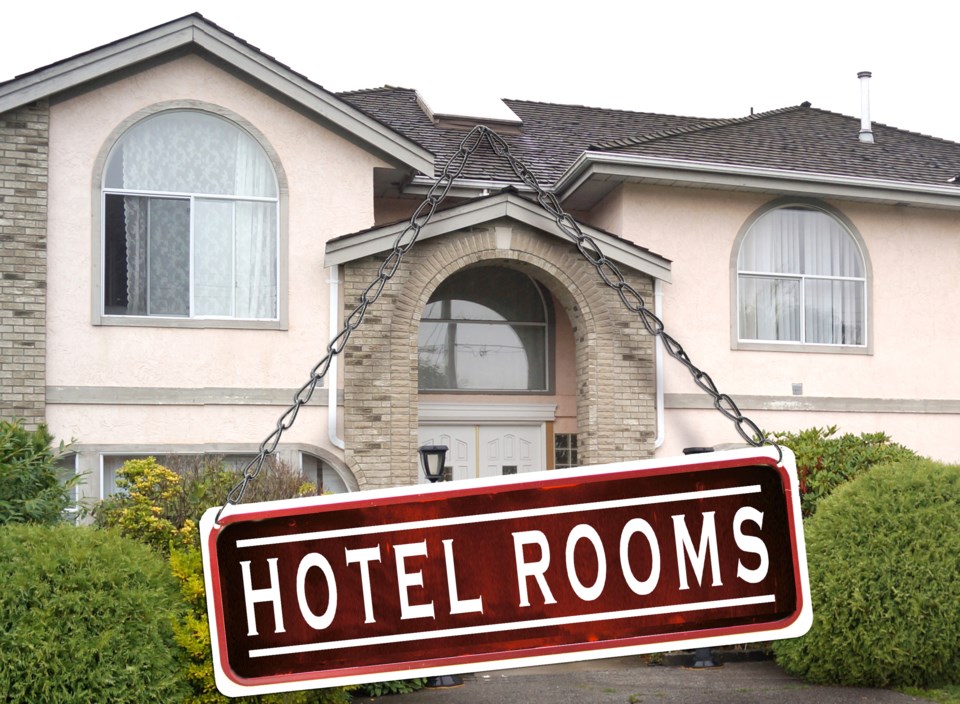Richmond city councillors are moving towards an aggressive, new regulatory regime to ban unlicensed, short-term rentals and streamline bed and breakfast licensing.
Proposed bylaws would mean no condo or townhouse units would be able to legally list daily or weekly rentals with online sites such as Airbnb.ca, Booking.com or Expedia.ca. Furthermore, limitations will be placed on single-family home listings.
At a committee meeting on Monday, licensing manager Carli Edwards tabled the report, which outlines new guidelines for bed and breakfast operators, increased fines and a temporary bylaw enforcement plan.
Her report was eventually sent back by the committee to amend certain parts.
If followed, the city would have some of the most restrictive measures in North America against short-term rentals, which have proven to be a nuisance for many residents in single-family home neighbourhoods and adversely affected rental stock in a city with a vacancy rate below one per cent.
Edwards told councillors that staff are monitoring online sites and will soon be sending out letters to homeowners who appear to be violating existing bylaws.
The bylaws should make it clear that short-term rentals will be banned in Richmond, unless a homeowner obtains a $162 bed and breakfast licence, which allows for no more than three rental rooms and a maximum of six guests.
Condos and townhouses will be excluded from licensing, thus banned from short-term rental opportunities. Coun. Harold Steves said staff have reported that some strata complexes have been overtaken by short-term rentals. He said a blanket ban makes for zero discretion on the matter. Secondary suites will also be barred from such rentals.
Speaking to committee, realtor Lyn Terborg said the report was “watered down.” She noted some regulatory bed and breakfast measures that once existed under Tourism BC guidelines were omitted from the new bylaws.
Councillors, hence, told Edwards to shore up certain details that they felt would be necessary. First, Mayor Malcolm Brodie suggested any newly licensed bed and breakfast obtain insurance. Second, Coun. Steves wanted to ensure that operators are the listed owners and permanent residents of the home. Third, Coun. Bill McNulty asked to have the new applicants undergo a re-zoning process, which would allow the city to regulate how many operations exist in one neighbourhood.
Steves said it will be important to limit the number of bed and breakfasts under the new bylaws.
Speaking at the committee meeting, community activist Kerry Starchuk, who lives next to a house hotel, said she was pleased with council’s directive.
Enforcement will be a key component of the regulations. Edwards notes enforcement has proven difficult in other jurisdictions (such as San Francisco).
Starchuk told the Richmond News her neighbour’s house was recently relisted on Airbnb after a News investigation found “Lancing House” illegally operating as a hotel on Booking.com.
Steves said the city will need to monitor other websites as well, such as Craigslist and Chinese-language classified sites.
The city has diverted three existing bylaw officers to the issue and is in the process of hiring four additional temporary bylaw officers.



